Ten Biggest Indonesian News Stories of 2022 – They’re not all entirely negative.
1. Regent’s slavery and lethal torture
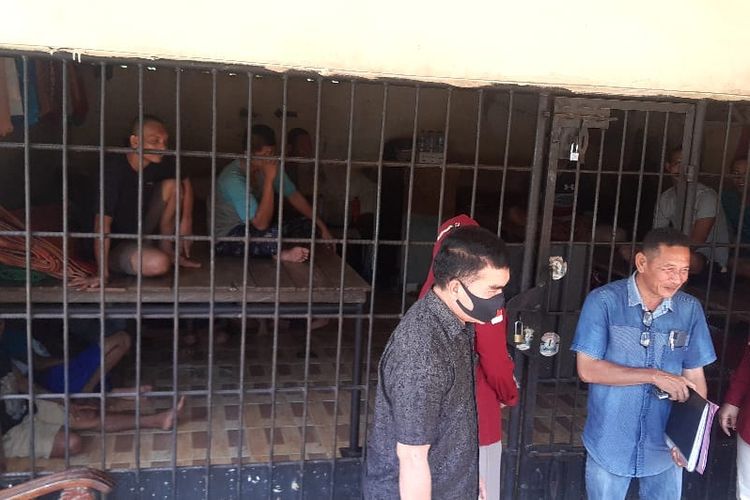
On the night of 18th January, the Corruption Eradication Commission (KPK) arrested the Regent of Langkat in North Sumatra province, Terbit Rencana Perangin Angin, on suspicion of receiving bribes for education and infrastructure projects. The following day, the KPK inspected the Golkar Party politician’s residential property and found two cages holding 57 slaves forced to work on his oil palm plantation. Human rights investigators said at least six slaves there had been tortured to death.
The slavery reportedly commenced in 2010 (long before Terbit became regent in 2019) under the guise of a rehabilitation program for drug addicts and involved 656 detainees over the years. Provincial police and the local division of the National Narcotics Agency claimed the setup was a rehab centre but changed their tune after widespread criticism. The Indonesian military in March admitted 10 Army officers were being investigated over alleged involvement in the case.
On 19th October, the Jakarta Corruption Court sentenced Terbit to nine years in jail for corruption. His older brother, a village head, received seven years and six months in jail in the same case. Terbit and eight other people are also suspects in a separate case involving the fatal caging.
In November 2022, prosecutors recommended a three-year jail sentence for Terbit’s son, Dewa, a youth leader of the notorious Pemuda Pancasila group, for allegedly torturing to death one of the prisoners, Sarianto Ginting, who was repeatedly beaten over several days before being shoved into a pond to die. Crying in court, Dewa denied any wrongdoing, claiming he helped to remove Sarianto’s body from the pond and provided first aid.
2. Death sentence for mass rapist teacher
 On 4 April, Herry Wirawan, a teacher at an Islamic boarding school (pesantren), in Bandung, West Java, was sentenced to death for raping 13 female students aged between 11 and 16. Eight of the girls were impregnated, resulting in nine children being born. The abuse had started in 2016 when Herry opened the school, but he was not arrested until 2021. He was originally sentenced to life imprisonment in February 2022, but state prosecutors appealed and Bandung High Court changed the sentence to death. No date has been set for his execution.
On 4 April, Herry Wirawan, a teacher at an Islamic boarding school (pesantren), in Bandung, West Java, was sentenced to death for raping 13 female students aged between 11 and 16. Eight of the girls were impregnated, resulting in nine children being born. The abuse had started in 2016 when Herry opened the school, but he was not arrested until 2021. He was originally sentenced to life imprisonment in February 2022, but state prosecutors appealed and Bandung High Court changed the sentence to death. No date has been set for his execution.
On 12rh April, Indonesia’s parliament passed a sexual violence bill into law after years of opposition from conservative Islamist groups, which had argued that wives must be obedient to their husbands. The new law covers nine types of sexual violence: physical and non-physical sexual harassment (inside and outside marriage), sexual torture, forced contraception, forced sterilisation, forced marriage, sexual slavery, sexual exploitation, and cyber-sexual harassment.
3. Rivalry exposes corrupt police
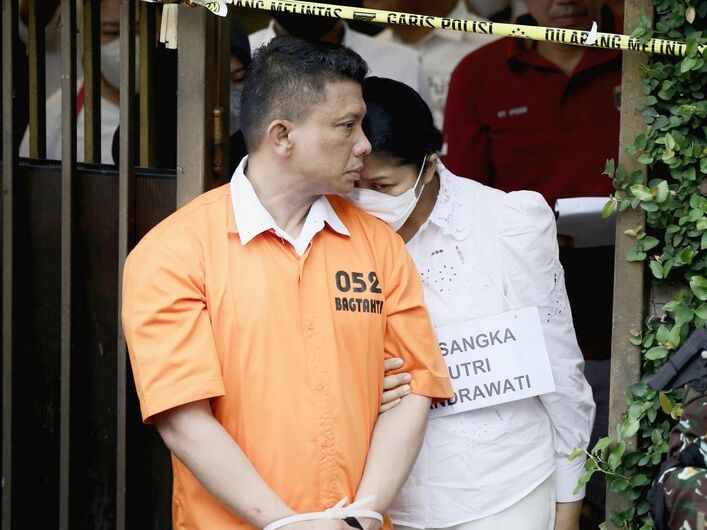
Rival divisions within Indonesia’s security forces were laid bare in 2022, revealing alleged police involvement in murder, gambling, and drugs. On 8th July, Police Brigadier Nofriansyah Yosua Hutabarat, better known as Joshua, was shot dead at the Jakarta residence of his boss, Inspector General Ferdy Sambo, head of internal affairs at the National Police. Officers initially claimed Joshua had tried to molest Sambo’s wife and was killed in a shootout with a police guard. Joshua’s body showed signs of torture and execution. Police on 9th August arrested Sambo and charged him with premeditated murder. This coincided with leaks that Sambo ran a gambling consortium. Subsequent leaks implicated police in narcotics dealing and receiving bribes from illegal mining.
Prosecutors at Sambo’s ongoing murder trial claim Joshua was killed because he was having an affair with Sambo’s wife, but a lawyer for the deceased’s family says Joshua was eliminated because he was deemed an intelligence double-agent, reporting on Sambo’s improper behaviour.
The exposure of the scandal has been linked to internal rivalries between elements of the National Police, state intelligence, and the military.
4. Pertamina fuel tanker crash
Police have named #Pertamina’s tanker truck driver and co-driver as suspects in the fatal incident that killed at least 10 people in #Cibubur Road on Monday (7/18). #SEAToday #SEATodayNews #Jakarta #Indonesia pic.twitter.com/V9k5O0fEsl
— SEA Today News (@seatodaynews) July 20, 2022
On 18th July, a fuel tanker truck operated by state-owned oil and gas company Pertamina failed to stop at a red light in Cibubur, southeast of Jakarta, and rammed into stationary traffic, killing 10 people, mostly motorcyclists. The tanker was in the slow lane and initially hit two cars, prompting the driver to swerve right and run over several motorbikes.
The grisly accident occurred on Jalan Alternatif, one of the most congested streets in Indonesia. The congestion is largely because of the rampant development of luxury housing estates – and the interminably slow completion of a light rail system linking Cibubur to Jakarta.
The traffic light at the scene of the crash had been installed some five months earlier to allow easier access to a new housing estate developed by the Ciputra group. Road signs warned there was a traffic light ahead. An online petition to remove the traffic light attracted over 47,000 signatures. The traffic light was then deactivated, exacerbating congestion Traffic lights do not cause accidents. Bad maintenance, bad management, and bad drivers cause accidents. The National Transport Safety Committee found the Pertamina tanker truck’s brake pads were too thin and its compressed-air brake system lacked sufficient air due to a leak from a solenoid valve for the air horn.
5. Parties, not people, still choosing presidential candidates
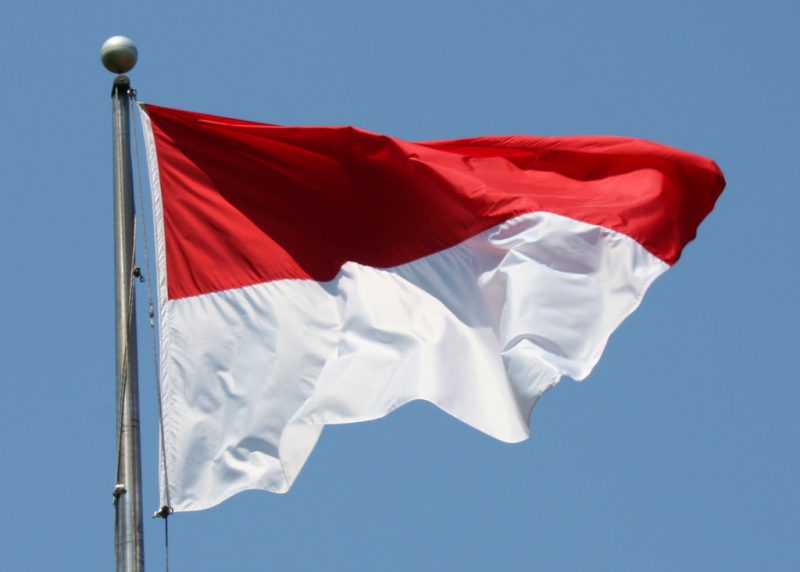
Election fever hit Indonesia in 2022, even though the next national elections are not until 14th February 2024. Under the election law, presidential candidates can only be chosen by political parties with at least 20 percent of seats in the national parliament or 25 percent of votes in the previous general election. Independent candidates are not allowed. The only party that meets the 20 percent criteria is former president Megawati Sukarnoputri’s Indonesian Democratic Party of Struggle (PDI-P). The clear frontrunner in opinion polls is Central Java Governor Ganjar Pranowo, a member of PDI-P, but Megawati is yet to name him as the party’s presidential candidate, as she seems to favour her daughter, Puan, who is polling badly. Other parties must form coalitions to nominate a candidate. Gerindra Party, teaming up with the Islam-oriented National Awakening Party (PKB), has nominated twice-failed presidential candidate, Prabowo Subianto, who currently serves as Defence Minister and was dismissed from the military in 1998 after his troops abducted pro-democracy activists. Another candidate is former Jakarta Governor Anies Baswedan, nominated by the NasDem Party, which is considering a coalition with the conservative Prosperous Justice Party (PKS) and former president Susilo Bambang Yudhoyono’s Democratic Party.
On 1st August 2022, registration opened for political parties wishing to contest the 2024 general election. By the 14th August deadline, 24 parties had registered. After a verification process, the General Election Commission reduced the field to 18 contestants, including six new parties. Among the newcomers is the Workers Party (PB). Election fever and backroom deal-making will only intensify in 2023.
6. Parliament fires judge for not toeing the line
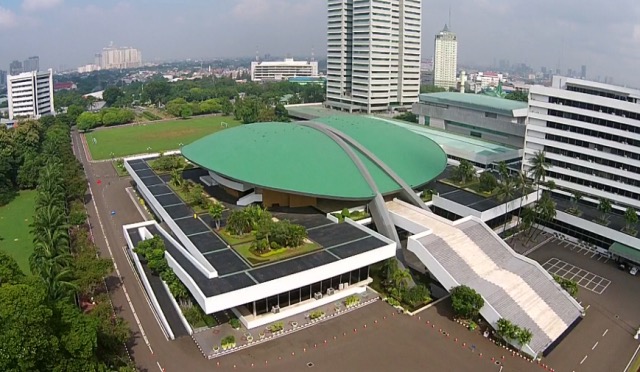
In an unprecedented move, the House of Representatives (DPR) on 29th September announced it was replacing the Deputy Chief Justice of the Constitutional Court, Aswanto, because he had not represented the DPR in carrying out his duties.
The Constitutional Court (MK) was established back in 2003 precisely to ensure that state power is not concentrated in the hands of the DPR and the president. MK has nine judges: three nominated by the DPR, three nominated by the president and three nominated by the Supreme Court. The MK has the authority to review laws and declare them unconstitutional, adjudicate disputes over powers of state institutions, resolve disputed election results, and decide on dissolution of political parties and impeachment of the president and vice president.
In November 2021, in a 5-4 vote, MK declared the Omnibus Law on Job Creation to be conditionally unconstitutional, partly because its formulation lacked public participation. Aswanto was among the five judges who called for more public hearings on the law. His stance upset the DPR. MK judges are only supposed to be replaced if they die, become physically or mentally incapable, reach retirement age, quit or get sacked for wrongdoing. Despite objections to the DPR’s ousting of Aswanto, President Joko Widodo on 23 November inaugurated the DPR’s pick for a replacement judge. Coincidentally, on 26th May 2022, the Chief Justice of MK, Anwar Usman, married Widodo’s younger sister.
The Supreme Court had its share of scandal this year when two of its 51 judges, Sudrajad Dimyati and Gazalba Saleh, were declared suspects in an alleged bribery case.
7. Police tear gas causes stadium crush

On 1st October 2022, Mobile Brigade (Brimob) anti-riot police and local police fired tear gas into crowds of spectators in response to a pitch invasion at the end of a football match at Kanjuruhan Stadium in Malang, East Java. In the ensuing panic, 135 people, including 40 children, were crushed or suffocated to death. The National Commission on Human Rights said some of the victims might have died from tear gas poisoning.
The incident was the worst loss of life in Indonesian sport and the world’s second-worst football stadium crush. East Java Police and the Malang Police are investigating the crush. Relatives of victims have complained this is a conflict of interest and want an independent investigation.
FIFA President Gianni Infantino visited Indonesia after the tragedy and was pictured laughing and high-fiving officials of the Indonesian Football Association (PSSI). On 18th October, President Joko Widodo said the stadium, which had been built over 1997 to 2004, would be demolished and rebuilt in line with FIFA standards.
8. G20 goes smoothly
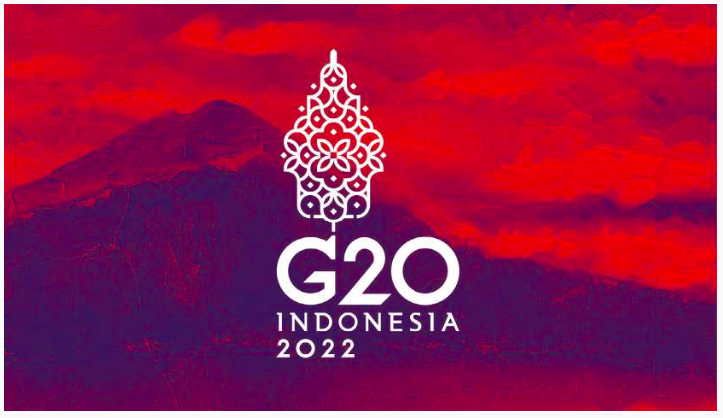
After months of agonising over whether there would be boycotts if Russian leader Vladimir Putin showed up, Indonesia ended up hosting this year’s G20 Summit in Bali without any major dramas. Putin opted not to attend the forum, so only his foreign minister was snubbed.
President Joko Widodo said the 15-16th November summit, which gathered the world’s 20 largest economies, delivered solid results. First, it established funding frameworks for future pandemics and crises. Second, the US and other nations agreed to raise $20 billion to support Indonesia’s planned transition to clean energy. Third, G20 member nations pledged to reduce land degradation by up to 50 percent.
If Indonesia is serious about improving the environment, then rather than asking for handouts, it could demonstrate its sincerity by halting the rampant littering of plastic waste, which is not only an eyesore but also puts plastic into the food-chain.
9. Papua province carved up

In 2022, the number of provinces in Indonesia increased from 34 to 37. That’s because the government on 11th November formally inaugurated three new provinces on the restive island of Papua: South Papua, Central Papua, and Highland Papua. When Indonesia took control of West New Guinea in the 1960s, it was originally a single province called West Irian, renamed Irian Jaya (1973) and then Papua (2000). It was split into Papua and West Papua provinces in 2003. Now there are five Papuan provinces. The government says the new divisions will accelerate development, reduce poverty, and increase Papuans’ involvement in national politics. Critics say the move is an effort to reduce the power bases of local politicians and separatist rebels, and will have a detrimental effect on the area’s rainforest environment.
The divisions were a blow to embattled Papuan Governor Lukas Enembe, who has favoured former president Susilo Bambang Yudhoyono’s Democratic Party over President Joko Widodo’s PDI-P. Enembe is presently being investigated for alleged corruption and embezzlement but claims to be too ill to be questioned at length.
10. Forests into food estates?

On the sidelines of the G20 Summit in Bali, Defence Minister Prabowo Subianto lamented that much of Indonesia’s land had been “degraded by capitalist greed”. He did not mention his brother’s mining and plantation businesses. Instead, Prabowo argued for the conversion of 16 million hectares of “degraded” Indonesian forests into agricultural land for food and bioenergy.
Climate change is recognised as both a driver of global food insecurity and a result of agricultural practices, which account for about 25 percent of greenhouse gas emissions.
On 16th November, Greenpeace Indonesia expressed concern that Prabowo’s targeted 16 million hectares includes peatlands the government has previously committed to restoring, and forest estate areas that would otherwise remain forested.
Environmentalists argue that food estate expansion programs in Kalimantan and Papua, especially within indigenous territories, are failing to raise food security, but will worsen both biodiversity losses and greenhouse gas emissions. Prabowo, however, maintains that planting oil palm, sugar palm, and cassava would make Indonesia the world’s bread basket.




